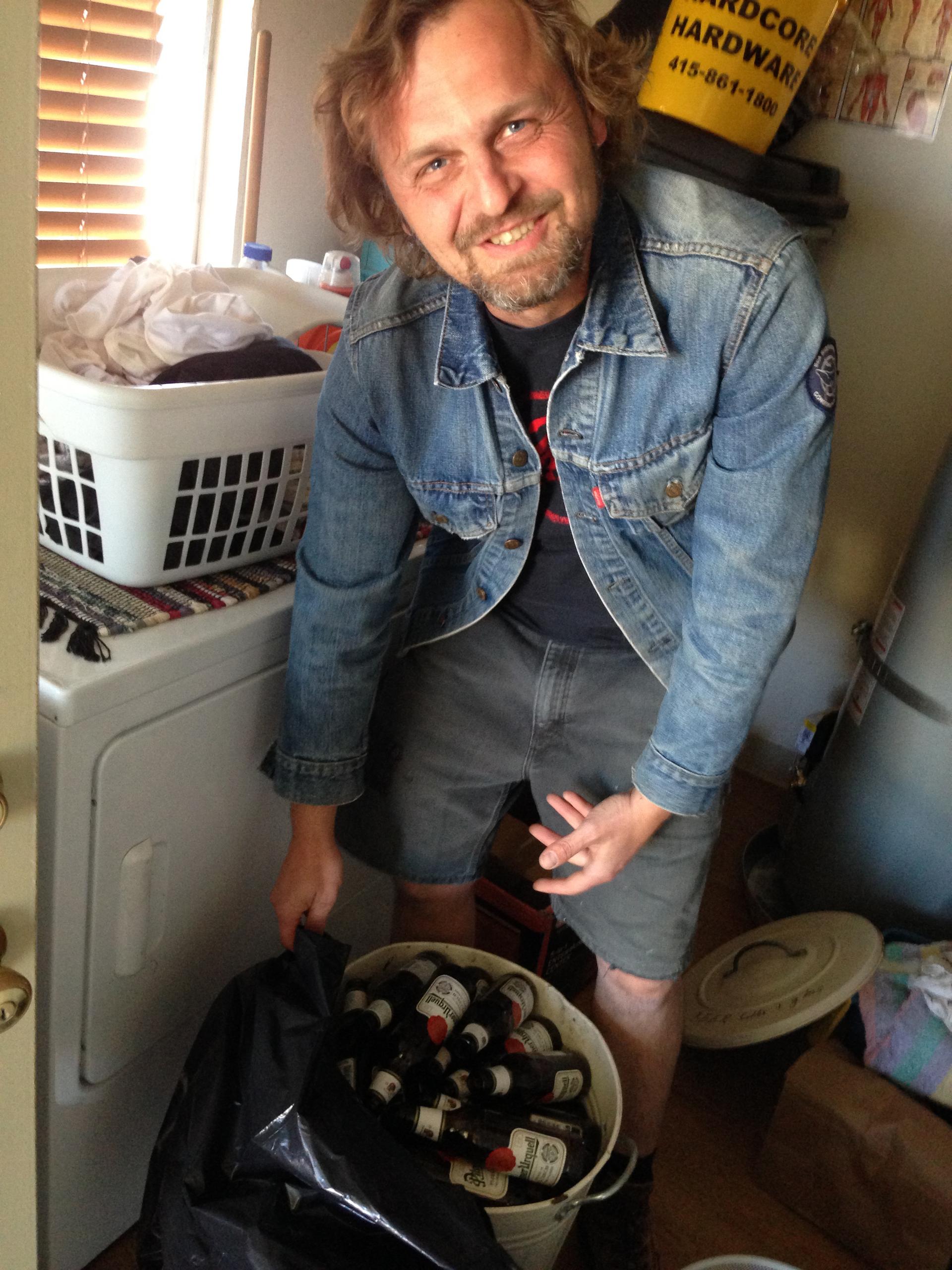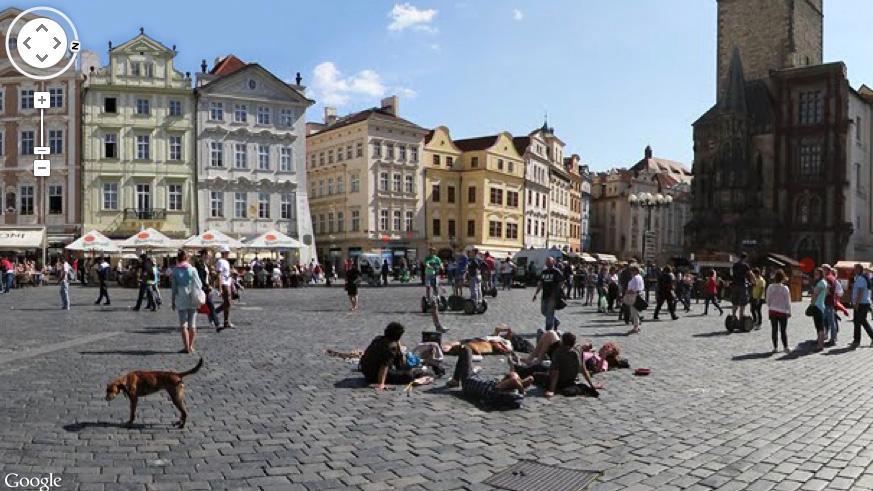STREET VIEW OF PRAGUE — The red dots are recordings taken from those locations. From Dogs barking to street musicians to gunfire in Congo, Aporee has the equivalent of 63 days worth of sound uploaded from all over the world.
Imagine if there were a Google map for sounds. There is — kind of. It’s called Aporee, and it’s an online audio archive where people upload field recordings, a lot of them. It has almost 30,000 recordings, about 63 days worth of sound.
On Aporee, you can listen to all kinds of things from across the globe. There are people beat-boxing in Kampala, Uganda:
Wildlife in the Amazon's Amacayacu National Park:
Metal workers in Kathmandu, Nepal:
And a firefight between military forces and rebels in the Democratic Republic of Congo, among many others.
And here's our recording at The World studios at WGBH in Boston.
Aporee was created by Udo Noll, a Berlin-based sound artist and programmer, who did it mostly because, well, it seemed cool to make a kind of living audio archive of the world. Now, people can download the sounds, remix them, or take a little trip just by listening.
Audio “gives a very rich experience of being somewhere at a very specific place, so you have a kind of landscape that opens,” Noll says.
Anyone can contribute to Aporee. There are sound artists like Jodi Rose, who used contact microphones to make this recording of London's Millennium Bridge.
But many contributors are just hobbyists gathering sound with inexpensive microphones, essentially amateur “phonographers” — like Karl Sidorjak, who’s from the Czech Republic and now lives in Berkeley, California. Sidorjak records stuff he loves, like the creeks behind his house, waves on the Pacific Coast, birds in nearby parks — the kind of sounds you would expect. But lately he’s been recording different kinds of things — sounds that grate on him.

“This is kind of the guts of the urban environment,” he says. “You can hear it too.”
We dump a bucket of his beer bottles into a metal bin and it makes a horrible crash — a beer avalanche, Sidorjak calls it. He has his recorder on to capture the sound; I have my recorder on to capture him.
High on Sidorjak's list of terrible noises are automated telephone systems, so he records them too. He also has a whole series on Home Depots. He says he's noticed the incessant background music is different at each one and seems to reflect the local demographics.
As you can probably tell, Sidorjak is sensitive to noise and recording, he says, is a way to deal with it. He can concentrate on gathering the sounds and that helps keep them from driving him crazy.
Sidorjak says he thinks it’s important to have audio on Aporee that really shows the kind of soundscape many of us live in, even if it is annoying and unpleasant.
“It's just plain bad, you know, the sound environment we spend a lot of time in,” he says.
After he makes the recordings, Sidorjak loads them onto the map — and there they are, the Home Depots and recycling centers alongside the birds and creeks and waves, those sounds many of us probably hear far less frequently than we would like.
